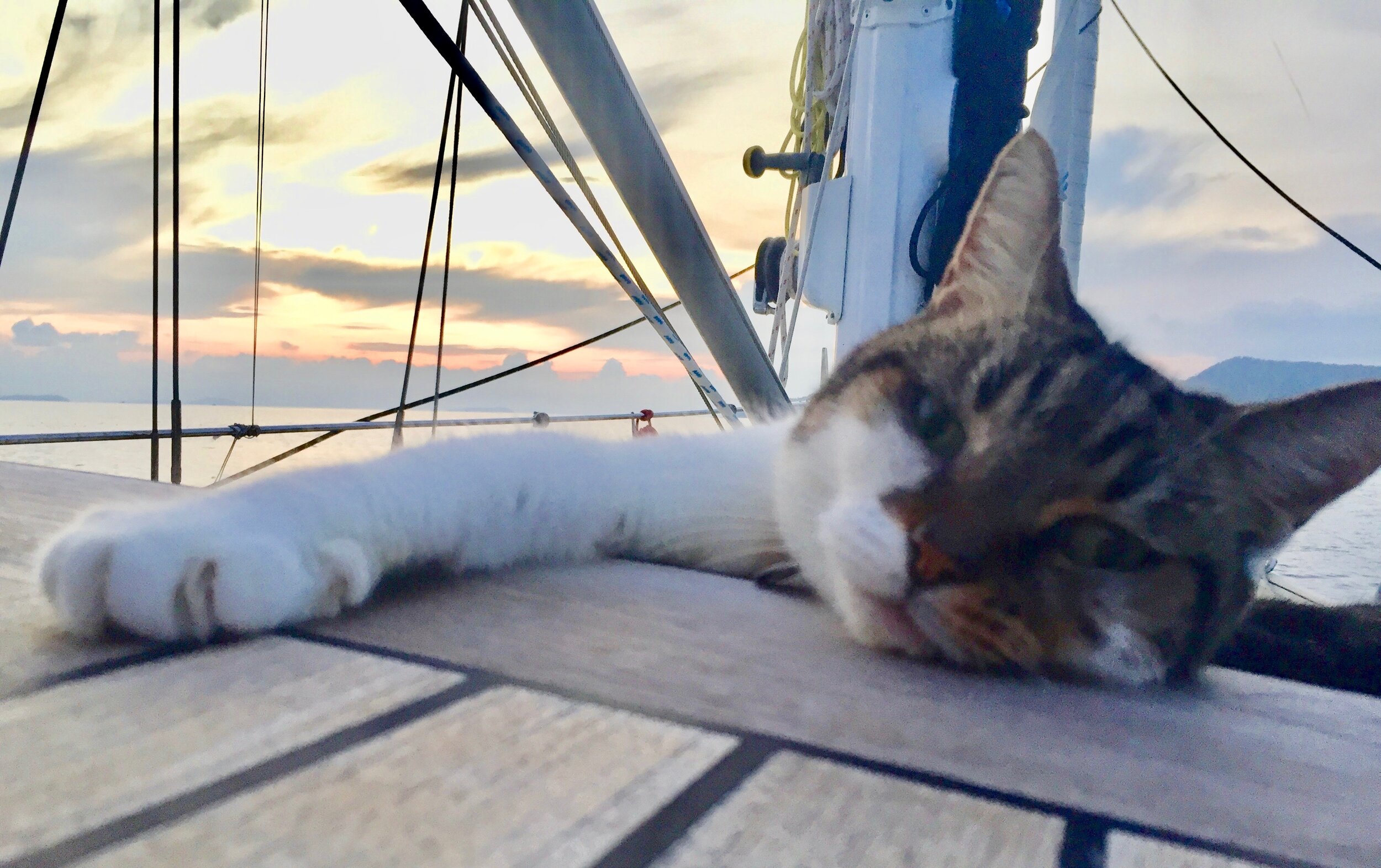Township Tour - Truly understanding, or simply voyeurism?

Yesterday we spent the afternoon on a private guided tour to the Imizamo Vethu township in Cape Town – and while we enjoyed it, we were left wondering, as always when we do such things, whether this is ethical?
Nestled between Table Mountain and the range behind it is Imizamo Vethu township.
Both Pete and I know a little of South Africa’s more recent turbulent history; apartheid, Nelson Mandela, ANC. But what we know is from movies, international media and a small amount of reading. So we have both been keen to learn more from our time in, and the people of, South Africa.
But here is the problem. Sailing is a “rich” person’s hobby/sport and therefore most of the people we meet in our travels are (comparatively) rich, white, South Africans. And whilst their perspective will be interesting and their own experience of the changes in South Africa since apartheid was abolished is real, it is not the majority experience.
So how do we create opportunities to learn beyond what the media and fellow white people have told us?
To expand our horizons in other countries we have typically gone to the market and met and chatted to locals whilst buying our groceries, or met local fisherman and had a chat, or wandered through a village and chatted with the leaders.
But South Africa is First World in many ways, and so we buy our food from fancy supermarkets, and it would be considered weird to wander through a suburb and just start chatting to random people on the street.
So when we saw a guided tour through a Township by a local we took the opportunity. We thought this would give us the chance to learn about their lives, how things have changed and to help us to understand where South Africa is now and where it is going.
One of our first views on entering the township was a pile of rubbish. According to our guide, it would be “collected” from there and taken to the dump next door, but it didn’t look like this ever happened.
Our guide was lovely and he gave us an overview of the Township’s history and how the community is set up. 30,000 people from 7,000 families. All “houses” have access to their own electricity, but they share toilets, and have a shared tap for water collection.
These 4 cubicles are properly plumbed, but serve 20 families (or about 90 people).
Many houses have a satellite dish (!), and there are a number of small shops, a few pubs, 2 clinics and 3 schools (2 primary and 1 high).
The kindergarten had 4 rooms, only one of which was in use. The kids here were singing a Xhosi version of “Frere Jacque”
Almost every building had a satellite dish.
The pub was tiny, but had a pool table and a small bar inside. Note the adverts on the outside for wifi.
Much of the infrastructure has been donated by NGOs and overseas countries (Australia, USA, Ireland, Netherlands), with not much support from the South African government.
Although we enjoyed the tour, we didn’t get much depth from our guide when we asked questions digging below the surface, and to be honest it felt like something we could have read. It lacked the personal touch and that’s ok. It also felt like he was trying to put a glossy spin on things, perhaps feeling like this was the “right” way to present the situation to tourists who are paying to be there.
The township extended over a vast area. This particular section is very new (2017) - the houses here built to accommodate those displaced after fire tore through the area at the foot of the mountain.
When they run out of room, they build a new house on top of someone else’s. There is no title (and thus legal ownership) for each house, so permission to build must be sought from elders.
However, when we were finished, our guide left us with a local woman, Belinda, to ensure we safely got on the bus. She was lovely, smiley with a great laugh.
It was during our 15 minute conversation with her that we learnt the most.
How her parents were forcibly removed from their home and land when she was 10, and that’s why she lives in the Township.
How she pays most of her income to her kids’ schooling (a private, previously whites-only school) so that her kids have a good education and a better chance at attending Uni and life out of the Township. She explained that kids who attend government schools and get to Uni usually drop out in the first year as they are not properly prepared for the level and pace of learning. She had hope for her kids future but not really her own.
How the rich white lady in her Jaguar who stopped beside us to drop off her black maid was actually someone to be grateful to, not resented, as she was offering employment and thus a way to educate your kids.
Belinda’s insights were invaluable, but our question still remained: should our desire for knowledge and understanding allow us to pay to be voyeurs into the lives of those living in hardship?
That is why we struggled… Is this ethical? Does our desire to “know” more help this community, does it give them a louder voice? Or are we just diving into the murky waters of slum tourism? We hope that paying for the experience helps money flow into the community, but you never know.
We’d love to hear your thoughts on this, as it’s such a complex topic and we really don’t know how we feel ourselves!





